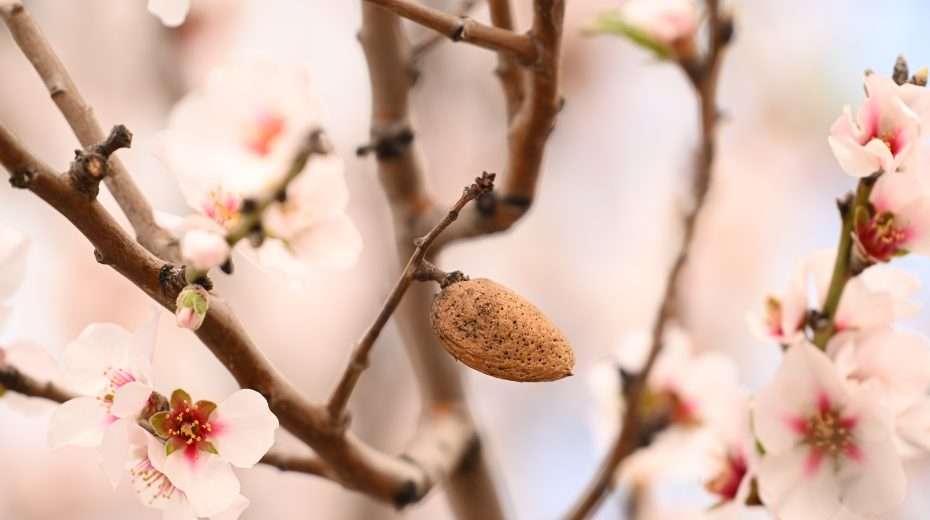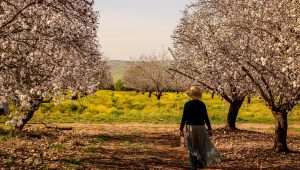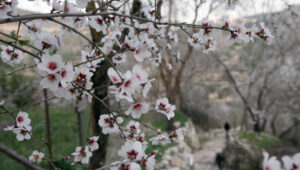It’s not a holiday for which the house is cleaned in its honor, like Passover. Nor do we build a decorated sukkah on the balcony like at the Feast of Tabernacles. There are no greeting cards like on Rosh Hashanah. Families don’t buy new clothes, or furniture. The children do not get time off from school.
Many do not even eat the traditional dried fruits – the Tu Bishvat seder, a meal of all the fruits of the land (though most of them are imported from abroad). It’s as if we have forgotten. This holiday is not respected like the other holidays. People act like this is a normal weekday. It feels like this holiday is merely a recommendation.
You can see that schools still organize the planting of young tree on this day, and this is actually the main way in which Tu Bishvat is celebrated.
We would have almost forgotten this holiday if it weren’t for the fact that all of nature awakens in its honor. The sights that are revealed outside are actually what make the feeling in the heart so festive and special, thus reminding us how much of a celebration Tu Bishvat is after all. This is a holiday when the almond blossoms, and is actually the first to inform us of the soon coming Springtime blooming season.
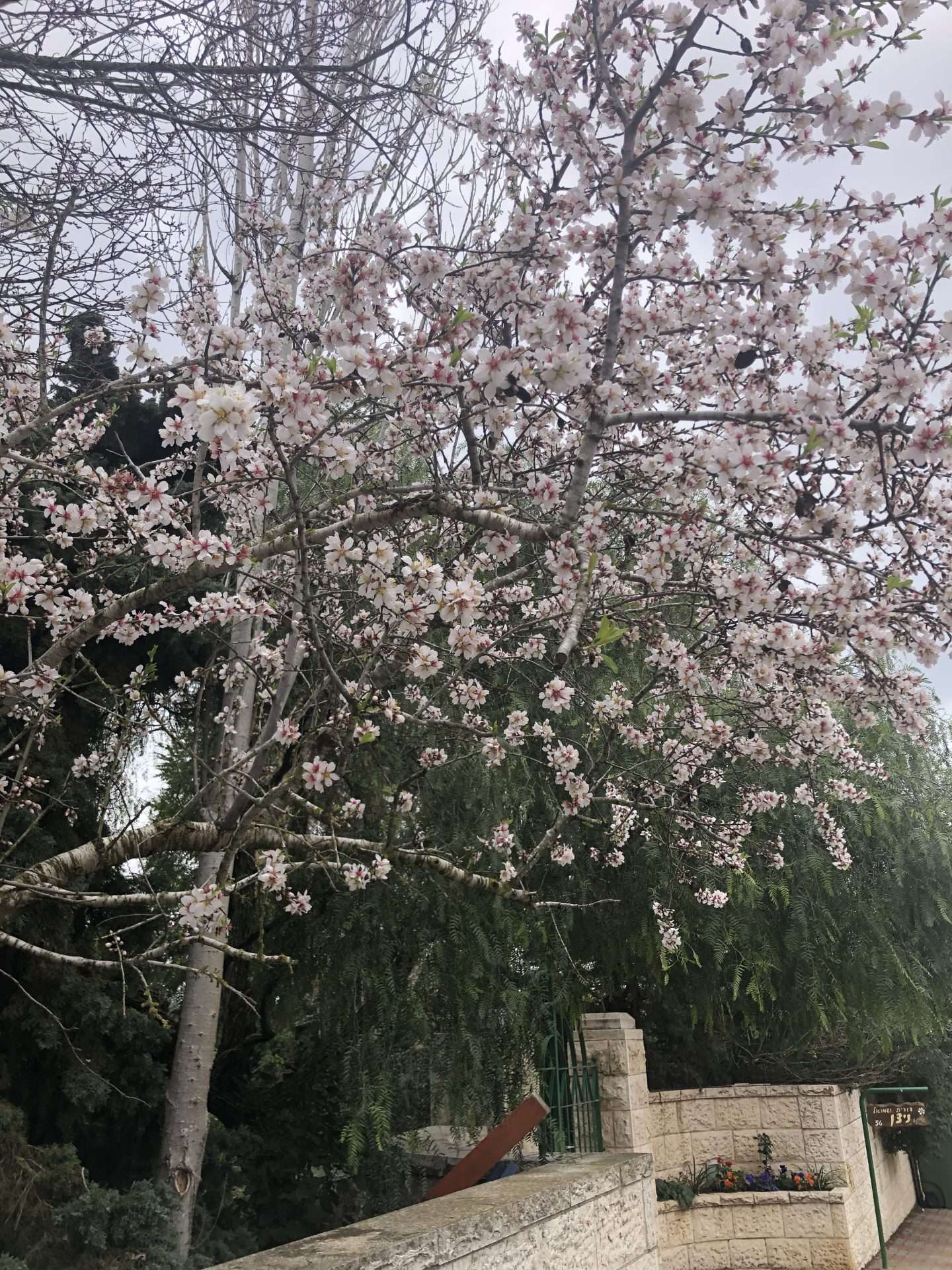
Yet it happens at the height of winter, when the rain clouds are still gloomy and gray, and when the nights are longer than the days and there are more hours of darkness than daylight. We are at the height of the cold season and suddenly, as if out of nowhere, the magnificent almond tree blooms in shades of pink and white, with an intoxicating smell, reminding us that in every gloomy moment there is always a spot of light.
For me, the almond flowers herald the arrival of spring. The almond blossom is a promise of many other flowers soon to come, and a reminder that winter is not here forever. In a little while the darkness will disappear, and the light will intensify and a multitude of flowers, colors and smells will fill the land.
And so Tu Bishvat became for me (and this year more than ever) a harbinger of change and relief. It foretells the endless cycles of nature. It reminds me how connected I am to the earth and how much I need the earth to exist. It defiantly announces that agriculture has not passed away from the world, even though we feel as if modern humanity will soon be eating chemical meals on our plates.
Tu Bishvat for me is a holiday of the formation of connections between all seasons. A holiday that reminds me that everything in life has a meaning even if at that moment it is not clear and understandable.
Tu Bishvat is the holiday on which I was born, and therefore my connection with it is very deep. This holiday fills me with thoughts and reflections more than any other holiday.
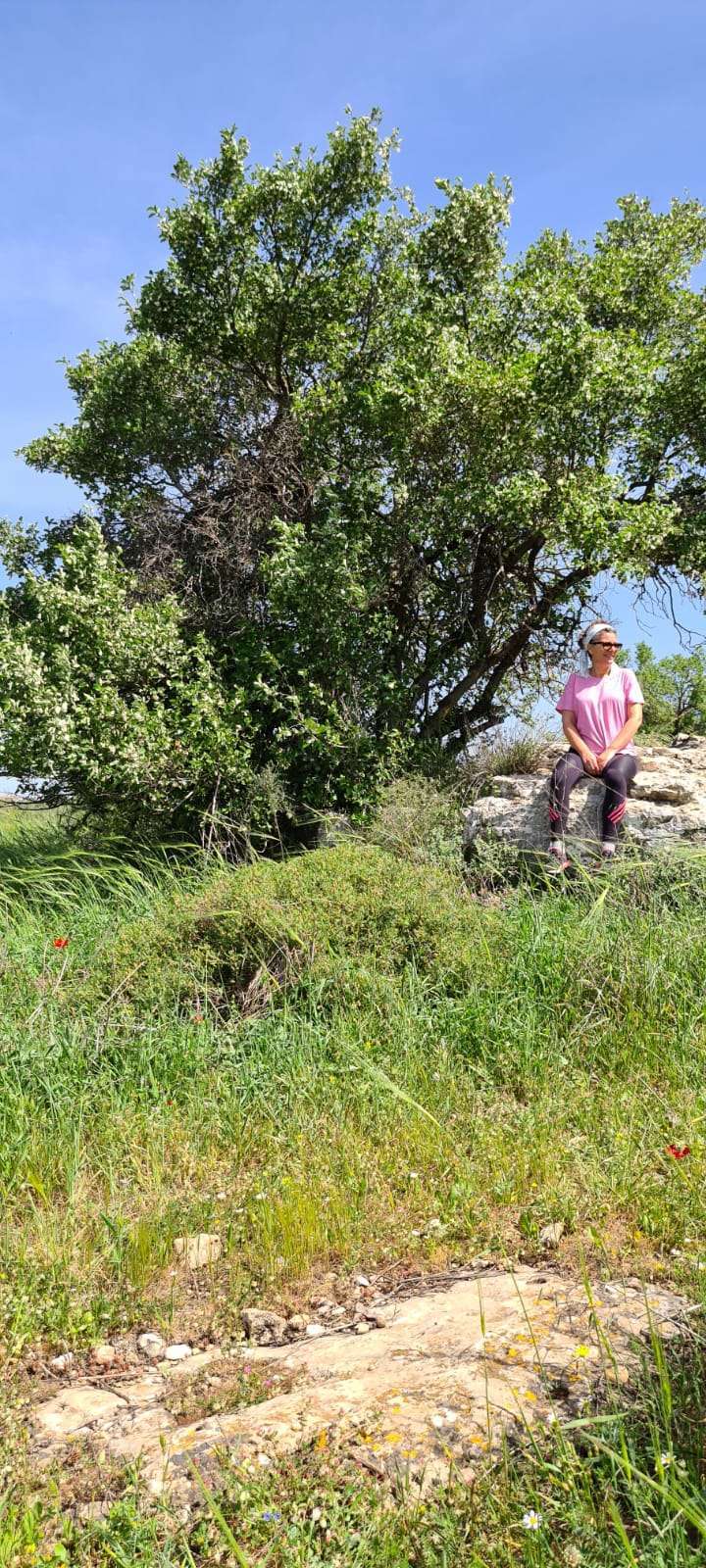
Tu Bishvat this year in Israel is so dark and gloomy, “dripping” in the blood of fallen IDF soldiers, full of bereavement and sadness. This year there is also a lot of desperation and a sense of uncertainty.
And despite all this while driving from home to the office, immersed in the sadness that is playing on the radio, heart aching from loss, from pain…
Suddenly I saw through the windshield that the almond tree had already begun to bloom. I opened the window to let the fragrant whisper of the wind come inside and penetrate into my soul.
And fill my heart with hope and gratitude.
In the spirit of the holiday, we are offering our readers a special offer in our JLMBox online shop: 1 liter of Canaan olive oil + 2 kg of Medjool dates together for only 50 euros!
Order here now!


